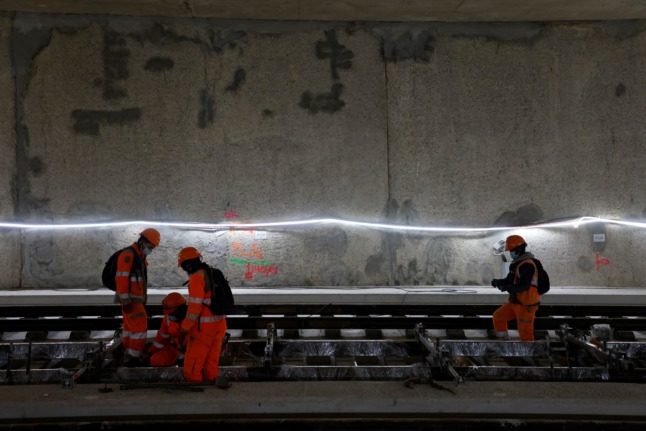Metro
The most significant changes to Metro lines will take place on line 6. The line will be closed between Montparnasse-Bienvenüe and Trocadéro throughout July and August, and the Nationale station will remain closed until the end of August. Replacement bus services will be available but will add time to your journey.
The Mairie des Lilas stop will also be inaccessible from June 26th, so line 11 line will end at Porte des Lilas until August 29th.
There will also be disruption on line 14, with no trains running between Gare de Lyon and Olympiades from July 25th until August 22nd, as work takes place to extend the line to Paris Orly Airport.
RER
Services on the RER A line will be suspended between Auber and the Université, Cergy and Poissy stations from June 26th until August 29th, every day from 9pm and all day on weekends.
From August 9th to 13th, and August 16th to 20th, services will be suspended all day between Auber and La Défense, and no trains will be running to or from Poissy.
Frequent work is planned on RER B, which will affect journeys between the city centre and Charles de Gaulle and orly airports. There will be no services between Aulnay-sous-Bois and Charles de Gaulle 2 Airport on the weekend of June 26th-27th, or any day after 11pm from July 1st until August 27th. There will however be a replacement bus.
Services between Charles de Gaulle terminals 1 and 2 will also be suspended on July 3rd and 4th. Likewise for journeys between Gare du Nord and Charles de Gaulle 2 on August 14th and 15th.

Improvements take place during the summer, when public transport is less crowded. Photo: Aurore MESENGE / AFP.
The Luxembourg stop meanwhile will be closed throughout the whole of July. As will the Fontaine-Michalon station to the south of Paris from June 28th to July 23rd, and Denfert-Rochereau every weekend from July 24th until August 22nd.
The RER C will also see its share of engineering works, with no trains running between Pontoise and Avenue Henri Martin on weekdays after 9:30pm, from July 1st until July 13th.
There is greater disruption to come on weekends from July 15th to August 21st. Services will be suspended between Musée d’Orsay and Pontoise, Saint-Quentin en Yvelines and Versailles Château Rive Gauche, and Massy – Palaiseau and Pont de Rungis Aéroport d’Orly.
Tram
Most tramlines will be unaffected by works, but there will still be interruptions in certain areas. Notably, the stretch of the T3b line from Porte de Vincennes to Delphine Seyrig will be blocked between July 3rd and 9th.
Full details of the disruption can be found on the RATP website.



 Please whitelist us to continue reading.
Please whitelist us to continue reading.
Member comments